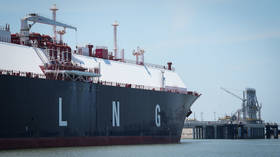Germany and UK make Russian energy promise
Berlin and London are not planning to restore trade ties with Moscow even after the Ukraine conflict ends and President Vladimir Putin leaves office, Bloomberg reported on Wednesday citing German and British officials.
“This is a relationship that has come to an end,” Miguel Berger, Germany’s ambassador to the UK, stated at the Energy Intelligence Forum in London. “There will be no return,” UK Minister for Energy and Net Zero Graham Stuart confirmed.
Western European countries slashed energy imports from Russia, their former top fuel supplier, over the Ukraine conflict last year and imposed embargoes on Russian coal and oil.
Natural gas supplies from Russia also shrank dramatically following Western sanctions and the sabotage of the Nord Stream pipelines. In terms of direct purchases, currently Moscow is covering less than 10% of the continent’s energy needs. In 2021, Russian gas accounted for about 45% of EU purchases and nearly 40% of its consumption of the fuel.
While for the UK the loss may not be huge, as it was importing only about 4% of its gas and 9% of its crude oil from Russia in 2021, for Germany the loss of Russian gas has resulted in a major energy crisis. Western sanctions have deprived the EU’s largest and most industrialized economy of about half its gas supplies.
“The situation is very challenging,” Berger admitted. Gas prices will remain higher, creating “constant pressure for Germany and its industry.”
Imports of pipeline gas from Russia have been mostly halted, but EU countries have continued to buy record volumes of liquefied natural gas (LNG) from the sanctioned country this year, despite the bloc’s pledge to stop consuming Russian energy.
Spain, France and Belgium were among the countries that boosted purchases of the super-chilled fuel from Russia, which has so far gone unsanctioned despite repeated calls to turn off the tap from a number of EU officials.
The EU has also boosted imports of petroleum products from India, which is now one of Russia’s biggest oil buyers. This has raised concerns in the EU that the bloc is still dependent on Russian crude supplies, which continue to arrive refined from third countries.
For more stories on economy & finance visit RT’s business section
You can share this story on social media:








Comments are closed.